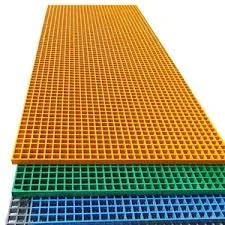
-
 Afrikaans
Afrikaans -
 Albanian
Albanian -
 Amharic
Amharic -
 Arabic
Arabic -
 Armenian
Armenian -
 Azerbaijani
Azerbaijani -
 Basque
Basque -
 Belarusian
Belarusian -
 Bengali
Bengali -
 Bosnian
Bosnian -
 Bulgarian
Bulgarian -
 Catalan
Catalan -
 Cebuano
Cebuano -
 China
China -
 China (Taiwan)
China (Taiwan) -
 Corsican
Corsican -
 Croatian
Croatian -
 Czech
Czech -
 Danish
Danish -
 Dutch
Dutch -
 English
English -
 Esperanto
Esperanto -
 Estonian
Estonian -
 Finnish
Finnish -
 French
French -
 Frisian
Frisian -
 Galician
Galician -
 Georgian
Georgian -
 German
German -
 Greek
Greek -
 Gujarati
Gujarati -
 Haitian Creole
Haitian Creole -
 hausa
hausa -
 hawaiian
hawaiian -
 Hebrew
Hebrew -
 Hindi
Hindi -
 Miao
Miao -
 Hungarian
Hungarian -
 Icelandic
Icelandic -
 igbo
igbo -
 Indonesian
Indonesian -
 irish
irish -
 Italian
Italian -
 Japanese
Japanese -
 Javanese
Javanese -
 Kannada
Kannada -
 kazakh
kazakh -
 Khmer
Khmer -
 Rwandese
Rwandese -
 Korean
Korean -
 Kurdish
Kurdish -
 Kyrgyz
Kyrgyz -
 Lao
Lao -
 Latin
Latin -
 Latvian
Latvian -
 Lithuanian
Lithuanian -
 Luxembourgish
Luxembourgish -
 Macedonian
Macedonian -
 Malgashi
Malgashi -
 Malay
Malay -
 Malayalam
Malayalam -
 Maltese
Maltese -
 Maori
Maori -
 Marathi
Marathi -
 Mongolian
Mongolian -
 Myanmar
Myanmar -
 Nepali
Nepali -
 Norwegian
Norwegian -
 Norwegian
Norwegian -
 Occitan
Occitan -
 Pashto
Pashto -
 Persian
Persian -
 Polish
Polish -
 Portuguese
Portuguese -
 Punjabi
Punjabi -
 Romanian
Romanian -
 Russian
Russian -
 Samoan
Samoan -
 Scottish Gaelic
Scottish Gaelic -
 Serbian
Serbian -
 Sesotho
Sesotho -
 Shona
Shona -
 Sindhi
Sindhi -
 Sinhala
Sinhala -
 Slovak
Slovak -
 Slovenian
Slovenian -
 Somali
Somali -
 Spanish
Spanish -
 Sundanese
Sundanese -
 Swahili
Swahili -
 Swedish
Swedish -
 Tagalog
Tagalog -
 Tajik
Tajik -
 Tamil
Tamil -
 Tatar
Tatar -
 Telugu
Telugu -
 Thai
Thai -
 Turkish
Turkish -
 Turkmen
Turkmen -
 Ukrainian
Ukrainian -
 Urdu
Urdu -
 Uighur
Uighur -
 Uzbek
Uzbek -
 Vietnamese
Vietnamese -
 Welsh
Welsh -
 Bantu
Bantu -
 Yiddish
Yiddish -
 Yoruba
Yoruba -
 Zulu
Zulu
FRP Spray Pipe Applications and Benefits in Industrial Settings
The Importance of FRP Spraying Pipes in Modern Industries
In today's fast-paced industrial landscape, the demand for robust, durable, and efficient materials is paramount. Among these materials, Fiber Reinforced Plastic (FRP) has emerged as a game-changer, particularly in the manufacturing of spraying pipes. These pipes, known for their versatility and resilience, play a crucial role in various applications ranging from agriculture to industrial processes.
What are FRP Spraying Pipes?
FRP spraying pipes are composite materials consisting of a polymer matrix reinforced with fibers—most commonly glass fibers. This combination endows the pipes with exceptional strength, lightweight properties, and excellent resistance to corrosion, making them ideal for challenging environments. The spraying mechanism typically involves coating or applying materials through these pipes, allowing for precise delivery in several industrial processes.
Advantages of FRP Spraying Pipes
1. Corrosion Resistance One of the significant advantages of FRP is its resistance to corrosion. Traditional metal piping systems can degrade over time when exposed to various chemicals, which is a common scenario in industries such as chemical processing or wastewater treatment. FRP spraying pipes, however, can withstand aggressive environments without rusting or deteriorating, reducing maintenance costs and downtime.
2. Lightweight The lightweight nature of FRP makes it easier to handle and install compared to traditional piping materials like steel or concrete. The reduced weight not only simplifies transportation but also lessens the structural load on supporting structures, making it easier to incorporate into existing designs without extensive modifications.
frp spraying pipe

3. Customizability FRP spraying pipes can be tailored to meet specific application requirements. Manufacturers can adjust the resin type, fiber content, and pipe dimensions according to the industry needs, resulting in a product that delivers optimal performance for various environmental conditions.
4. Thermal and Electrical Insulation Unlike metallic pipes, FRP provides excellent thermal insulation, helping to manage temperature changes effectively. Additionally, it is a non-conductive material, making it safer for applications where electrical insulation is crucial.
5. Cost-Effectiveness While the initial investment for FRP spraying pipes may be higher than conventional materials, the long-term savings on maintenance and replacement highlight their cost-effectiveness. The durability and resistance to damage reduce the need for frequent repairs or replacements, thereby ensuring a better return on investment over time.
Applications of FRP Spraying Pipes
The applications of FRP spraying pipes are vast and varied. In agriculture, they are used for irrigation systems, delivering water and nutrients to crops with precision. In the construction industry, these pipes are part of spraying systems used for protecting structures from fire and corrosion. Furthermore, they find applications in the aerospace and automotive industries, where lightweight materials contribute significantly to fuel efficiency and performance.
Conclusion
In conclusion, FRP spraying pipes are revolutionizing the way industries approach fluid transfer and handling. Their myriad benefits—from corrosion resistance to lightweight properties—make them an indispensable component in modern industrial applications. As the demand for innovative materials continues to grow, the role of FRP spraying pipes will undoubtedly expand, paving the way for more efficient and sustainable industrial processes. Embracing this technology today ensures a competitive edge for businesses in the ever-evolving market landscape.









